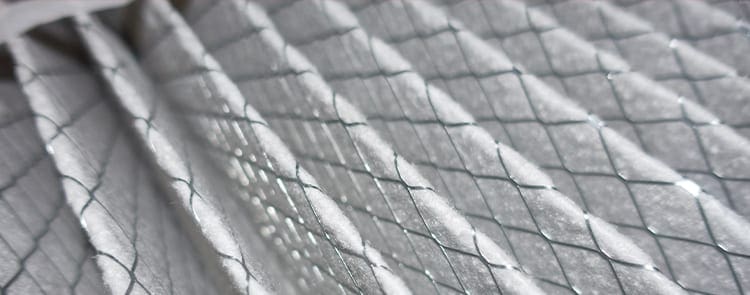Blogs
Which Air Filter do I Need?
1/22/2016

Air filters keep the dust out, mitigate allergies, and keep pollution levels low inside our homes. Using the right air filter can even mitigate (but not remove) the effects of smoke or pet dander. A quality filter will always lead to better breathing, regardless of the season. Not all filters are created to the same specifications. Different materials and shapes are designed for different purposes, from full-scale medical scrubbing to simple residential filters meant to be disposed of after a few months.
Types of Filters
- Fiberglass
- Polyester
- Electrostatic
- High-Efficiency Particulate Arrestance (HEPA)
- Washable
Ratings and Costs
There are two different ways to select an air filter for your home: By efficiency rating or by cost. The size and shape of your filter is based on your current ventilation system, so there’s nothing to be decided there. The rest is a balance of how much you want to spend on a filter compared to how sensitive you are to airborne contaminants.
Filters come in two different types: disposable and washable. Most filters used by residences are of the disposable type. Washable filters have the benefit of being reusable, by they typically have low Minimum Efficiency Reporting Values (MERV). MERV ratings are a simple number between 1 and 20 that identifies how effective a filter is at removing particles from the air.
- Fiberglass – Flat panel fiberglass filters are the most common filters for homes and apartments. They’re effective at removing dust, large pollens, and pet hair from the air but aren’t the most effective filter on the market. The inexpensive $1-2 price tag per filter makes them easily affordable, however.
- Electrostatic – These filters use an electrostatically-charged cotton to capture smaller particles and pollutants. They’re especially well-designed for homes with smokers or pets, as they’re capable of collecting particulates that a standard fiberglass filter will miss. They’re more expensive, however, averaging $10.
- Pleated Polyester – Unlike the previous two filters, polyester-based filters are folded into pleats. These pleats increase surface area, helping to push the MERV rating for a polyester air filter up into the 10-14 range. The increased surface area allows for a higher rate of airflow while still cleaning up the air as it passes through. If you want the best balance of cleaning power and cost, polyester filters are the way to go.
- HEPA – Hardy, long-lasting (they require replacement every year instead of every 3 months) and sporting an almost perfect MERV rating, HEPA filters are the most expensive on this list. Unfortunately, the major drawback is that they use a non-standard form factor. Unless your ventilation system is designed to use a HEPA filter, it won’t fit. These filters are standard for environments that require top-tier filtering, such as hospitals.
Thank you for making Service Legends the #1 provider of residential heating and air conditioning in the Des Moines area. A live and friendly customer care representative is ready to take your call 24/7 at 515-COMFORT (515.266.3678).
515-657-6634Request Appointment Online
Return- January 2024
- October 2023
- September 2023
- August 2023
- January 2023
- December 2022
- November 2022
- October 2022
- September 2022
- August 2022
- July 2022
- June 2022
- May 2022
- April 2022
- March 2022
- February 2022
- January 2022
- May 2021
- November 2020
- October 2020
- September 2020
- July 2020
- June 2020
- May 2020
- March 2020
- February 2020
- December 2019
- November 2019
- September 2019
- May 2019
- April 2019
- January 2019
- December 2018
- November 2018
- October 2018
- July 2018
- October 2016
- September 2016
- August 2016
- July 2016
- June 2016
- May 2016
- April 2016
- March 2016
- February 2016
- January 2016
- December 2015
- November 2015
- October 2015
- September 2015
- August 2015
- July 2015
- June 2015
- May 2015
- April 2015
- March 2015
- February 2015
- January 2015
- December 2014
- November 2014
- October 2014
- September 2014
- August 2014
- July 2014
- May 2014
- March 2014
- February 2014
- January 2014
- December 2013
- November 2013
- October 2013
- September 2013